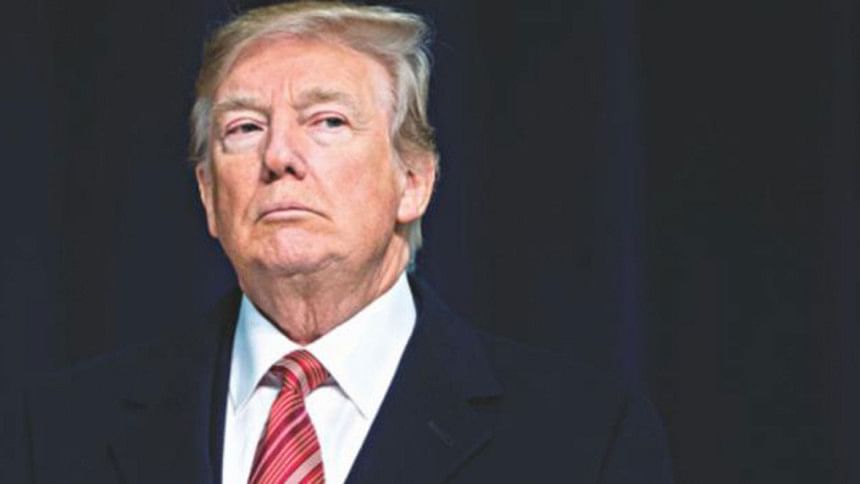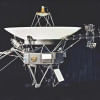Trump wants to dominate space, Moon and Mars

President Donald Trump boasted Monday of the US commercial space industry's deep wallet and enterprising spirit, and vowed US dominance in exploration of the Moon and Mars, as well as any future space race.
"America will always be the first in space," Trump said during a speech at the White House.
"We don't want China and Russia and other countries leading us. We've always led," he added.
"My administration is reclaiming America's heritage as the world's greatest space-faring nation."
The US president called for the Pentagon to create a new America "Space Force" that would become the sixth branch of the American military but requires Congressional approval to take effect.
The idea, which Trump has floated before, has stoked controversy at the Pentagon and among lawmakers.
"We are going to have the Air Force, and we are going to have the Space Force, separate but equal," Trump said.
At the Pentagon, spokeswoman Dana White said "our policy board will begin working on this issue, which has implications for intelligence operations for the Air Force, Army, Marines and Navy.
"Working with Congress, this will be a deliberate process with a great deal of input from multiple stakeholders," White added.
The creation of a new branch of the military cannot happen from one day to the next, as Congress would have to pass a law authorizing it first.
House Armed Services Ranking Member Adam Smith, a Democrat, said "any change of this kind would have to be legislated by Congress."
"If President Trump wants to make such a change within the military services, he should come discuss his proposal with us," he added.
'Rich guys like rockets'
Since his election, Trump has repeatedly vowed to send people back to the Moon for the first time since 1972, in preparation for the first human missions to Mars in the coming decades.
"When it comes to defending America it is not enough to merely have an American presence in space, we must have American dominance in space," Trump said.
He has also promised fewer regulations, so as to speed up the process private industries must go through before launching a rocket or satellite.
The US commercial space sector is booming, while the National Aeronautics and Space Administration (NASA) has shifted from its role as a launcher of rockets during the Apollo era (1961-1972) and the space shuttle era (1981-2011) to mainly a client.
The US space agency has contracted SpaceX and Orbital ATK to ferry supplies to the International Space Station since 2012.
NASA has been unable to send astronauts to space since the shuttle program ended in 2011, and relies on Russian Soyuz spaceships in the meantime.
SpaceX and Boeing are expected to start regular astronaut missions to low-Earth orbit next year.
Trump wants to privatize the ISS after 2025, another controversial notion in Congress, in order to spend more money on NASA and returning astronauts to the Moon.
"This time we will establish a long-term presence," Trump said.
NASA is working on its most powerful rocket ever, called the Space Launch System, or SLS, to launch astronauts and their equipment to the Moon and one day, Mars.
The US space agency also wants to build a lunar outpost.
But private industry will have a role in that, too. NASA has already sought out mission concepts for delivering materials to the surface of the Moon.
"Rich guys seem to like rockets," Trump said. "As long as it's an American rich person, that's good, they can beat us."
Meanwhile, Trump has signed two directives -- one that transfers certain powers from the Pentagon to the Commerce Department, including the regulation of private satellites.
Another directive on space traffic management is aimed at boosting public-private monitoring of objects in orbit so as to avoid collisions and debris strikes.
A White House statement said the move "seeks to reduce the growing threat of orbital debris to the common interest of all nations."
The Defense Department says there are 20,000 pieces of space debris and 800 operational US satellites circling Earth, a number that grows every year.

 For all latest news, follow The Daily Star's Google News channel.
For all latest news, follow The Daily Star's Google News channel. 








Comments